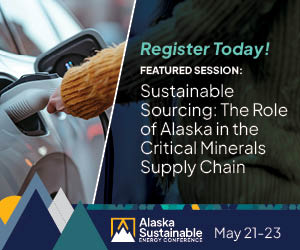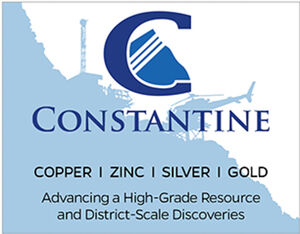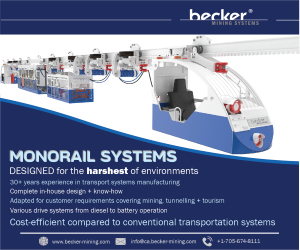The lights are on but nobody's home
Federal agency has goal of protecting mine workers, but draconian measures and unwarranted citations are taking its mandate too far
Last updated 11/21/2010 at Noon
There is a story that circulated around D.C. a number of years ago about the traditional little old lady in tennis shoes who approached her congressman and demanded he do something about some environmental cause or another. The congressman responded: "But Madam, we passed legislation last year to solve that very problem." She replied, "I know, I promised to lobby for it last year but couldn't because I was sick."
When it comes to legislation and administrative action by the government with regard to the domestic mining industry, over and over, we are encountering this very situation.
Critics of the mining industry are strident in their insistence on regulating problems that have already been cured.
Mining is the second-largest industry in Alaska, although it is dwarfed by oil and gas.
Number three, by any measure, is fishing.
Environmental and health and safety concerns are justifiably high priorities in both oil and gas and in mining; however, both health and safety seem to get a major pass when it comes to fishing.
In terms of the fishing industry, the danger and risk is somehow still a glorious adventure.
Television shows romanticize the dangers of fishing in a way that hasn't happened to the mining industry for decades.
When I was a kid, songs like "Sixteen Tons" and "Big John" were part of the daily fare.
Going down to the sea in a ship is not unlike going down into a mine, at least in terms of leaving one's comfort zone. There can be no doubt that mining once was a lot more dangerous than it is today. But that is yesterday's news.
Today, the talk around the circuit is consistently critical of the Mine Safety and Health Administration.
This agency has the goal of protecting mine workers, but has taken its mandate a bridge too far.
Enforcement inspectors are obliged to make unannounced visits to mine locations and issue citations.
Failure to issue a sufficient number of citations can result in internal disciplinary action against the inspector.
Failure of the mine operator to contest a questionable citation results in the operator being deemed to have a "pattern of violations," which aggravates the associated sanctions.
Contests, therefore, are necessary; however, the agency cannot expeditiously adjudicate them and backlogs are accumulating.
Alaska's mines are safe. Fort Knox has had over 3 million man hours without a lost-time accident. It is axiomatic that Alaska miners driving home from work are at greater risk on the highway than at the mine site. Few can disparage the objectives of MSHA, but the means of achieving them are ripe for critical review. Hardly an operator in the state lacks anecdotes of abuse by MSHA inspectors; although, virtually no one wants to bring the focus on their operation by visibly complaining.
The new Congress seems poised to inquire into such matters. Inappropriate Draconian law enforcement, among other things, is a total waste of taxpayer money. Certainly it precipitates a waste of mine operator money if an inspector is pursuing "fixes" that are unwarranted by conditions.
Government, of course, does a really lousy job of governing.
The efficacy of oversight is inversely proportional to the layers of bureaucracy.
Our form of government may well be far better than any identifiable alternative, but it is broadly deficient.
We bargained for hope and change in 2008 and we got it.
The economy has tanked, unemployment is high, manufacturing capacity is fleeing our shores and the currency is being aggressively devalued.
Those who believe, however, that "it's the economy, stupid" are being shortsighted.
The economy is simply the tip of a much larger iceberg.
There may be some things that government can do better than the private sector, but the list is short. When it comes to regulation of industry, the balance must be struck with a clear understanding of the contemporary reality.
Building health and safety regulations on conditions that do not persist are inapposite and should be reviewed.
The viability of the domestic mining industry may be contingent, at least in part, on modernization of this corner of the regulatory world.














Reader Comments(0)